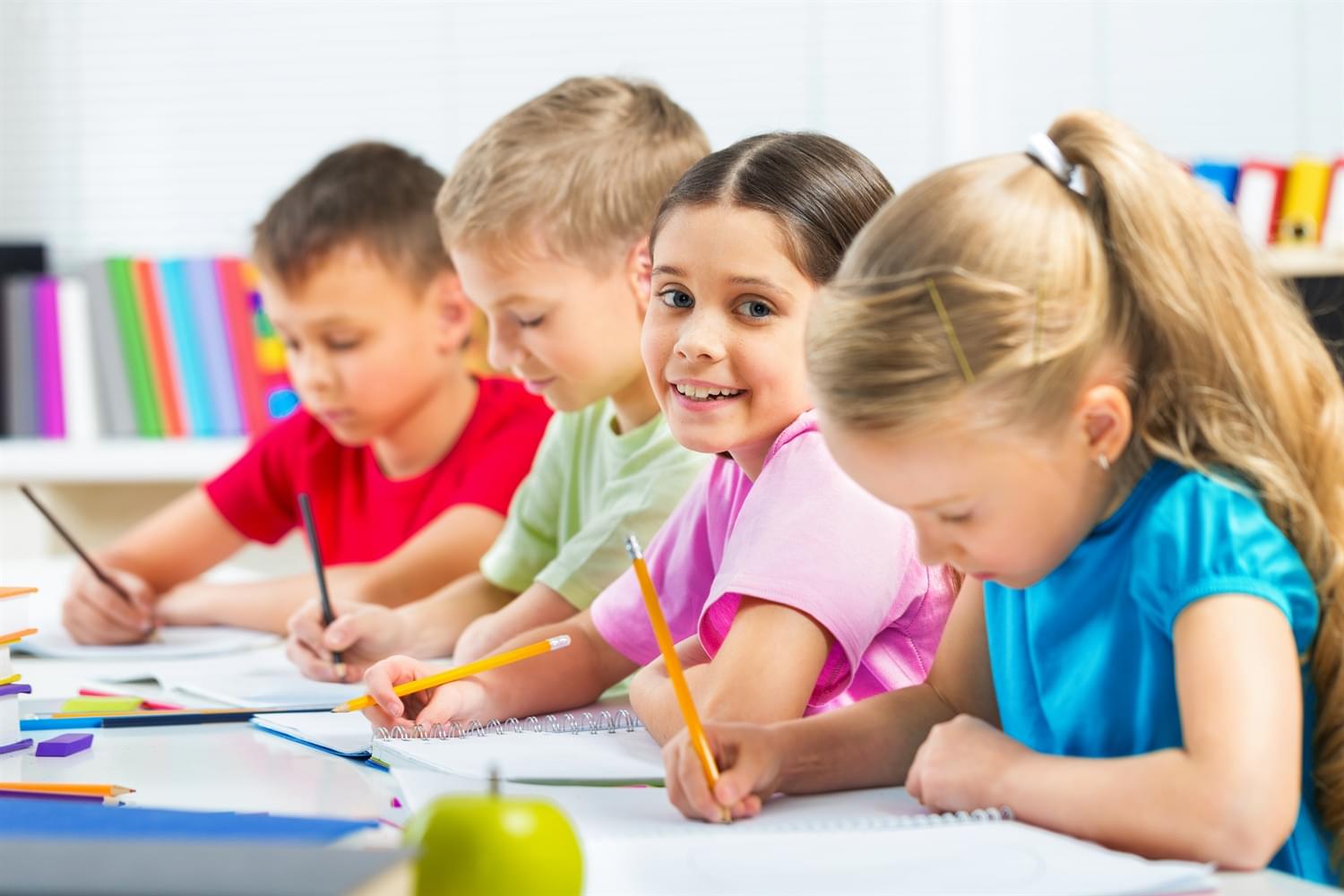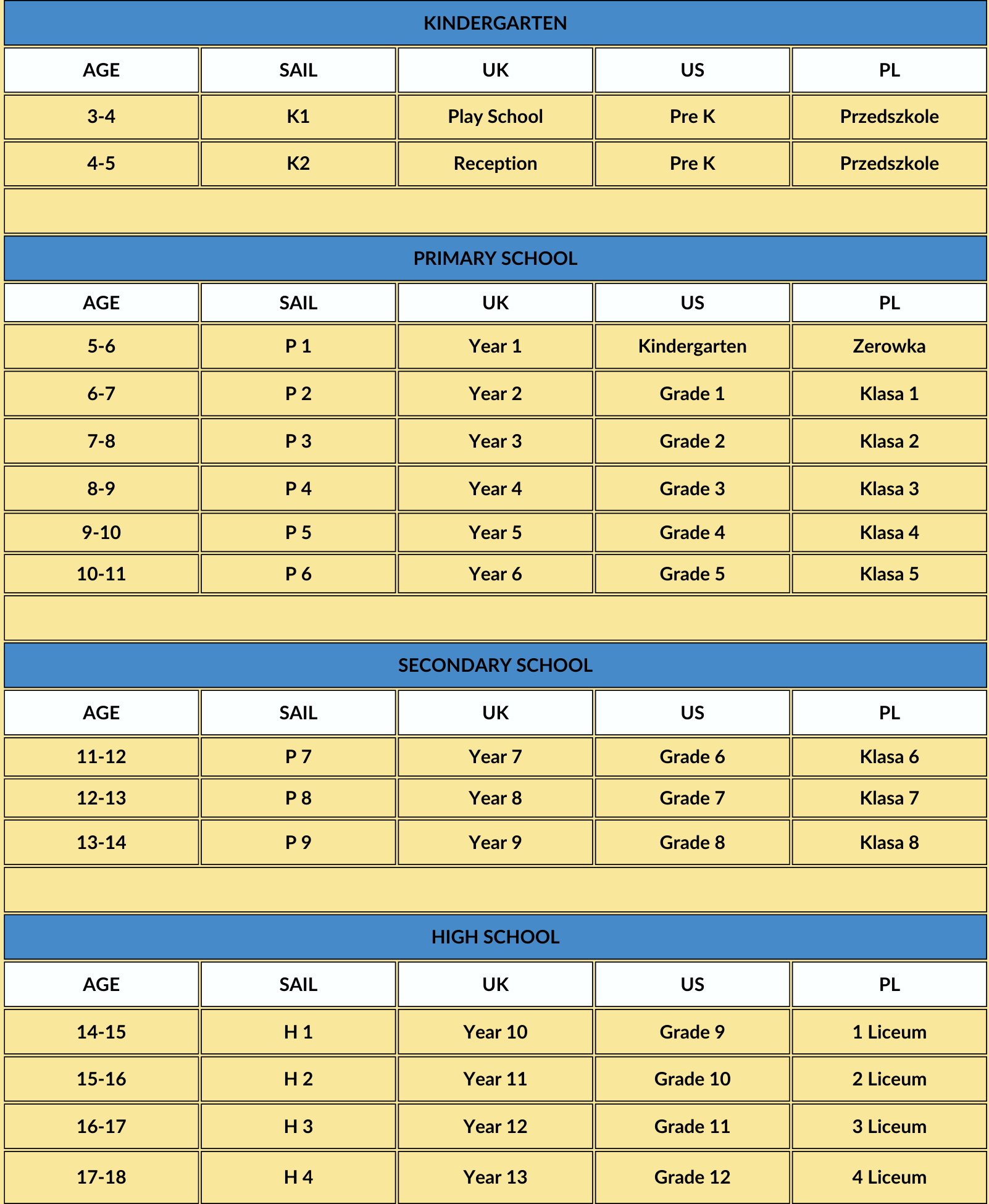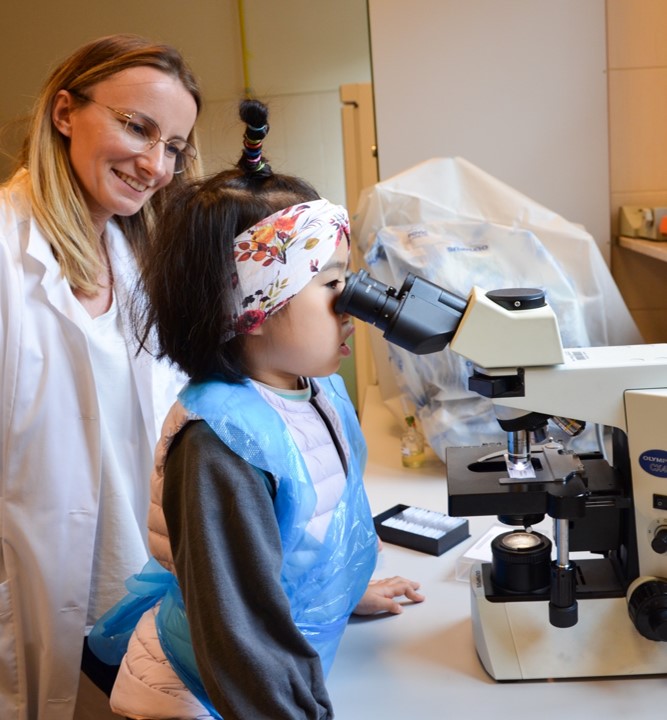


A broad and balance curriculum:
- 10 subjects (including English, Mathematics and Science)
- Classroom and external assessments
A broad and balanced curriculum:
- 10 subjects (including English, Mathematics and Science)
- Classroom and external assessments
A wide choice of subjects
- Cambridge IGCSE
(70+ subjects*)
- Cambridge ICE Certificate
* consult SAIL regarding availability
A wide choice of subjects
- Cambridge AS & A level (55+ subjects*)
- Cambridge AICE Diploma
* consult SAIL regarding availability
The naming of classes or grades differs from country to country. At SAIL International School, we generally follow the Cambridge system, starting with Primary 1 (P1) for the 5-year-old, which is still pre-school in Poland. Please find below an overview of our learning stages in comparison to a selection of countries.

If your child has finished a school year at a Polish school before entering SAIL International School, then the transfer to the corresponding subsequent class described in the overview is determined.
If your child moves from a foreign school to SAIL International School, then a provisional placement in the class is made by the school director after assessment of the individual situation (including factors like age and development, prior school career or language skills) and an interview with the parents. In rare cases, the provisional placement is corrected for the benefit of the child after a few weeks of observation, however this always happens in a joint decision together with the parents.
Especially in the lower classes, pupils learn in small groups, which makes possible an individual approach to pupils with a different level of learning within one class. In such an environment, an initial lack of language skills can usually be overcome within weeks. In very limited cases we can support children with special needs.
The school issues school reports with information on school performance, attendance and conduct. The current level of performance is displayed in a protected personal profile on the school```'s communication platform and can be regularly consulted with the teachers at parent-teacher-meetings.
“Music is the universal language of mankind", as Henry Wadsworth Longfellow wrote and a recent Harvard study confirmed. Music and languages naturally play an important role in our international school.
No matter what your plans for the future are, speaking more than one language is always an incredibly useful skill to have. This is especially true for children. As they grow into adolescence, practicing new language skills provides them with a platform to understand the world from a totally new perspective, encouraging them to embrace new customs and cultural nuances. There’s further added benefit, as languages nurture their sense of empathy and understanding towards others at a crucial time in their growth, while also opening up new pathways to professional success in a globalized workspace.
STEAM education was first developed by researcher Georgette Yakman as recent as in 2006 and it focuses on creating related and interconnected curricula designed to champion innovation in 21st-century topics. However STEAM education is a brand new approach at schools in Poland, many of the core tenets of STEAM have been around for centuries. As far back as the 15th century, individuals such as Leonardo da Vinci saw the value in bringing together the scientific and artistic worlds to innovate.
As defined by STEAM Education, it stands for “Science and Technology, interpreted through Engineering and the Arts, all based in Mathematical elements.” This style of teaching focuses on providing an adaptable framework for education that highlights relationships between subject areas rather than cordoning each off. By taking this approach, education becomes more fluid and students learn how each discipline depends on the other.
The Arts in STEAM is about using creativity and imagination to increase the development of STEM’s essential skills, as well as enhance flexibility, adaptability, productivity, responsibility and innovation - all required skills for a successful career of our pupils in any field of study.
One of the major threats for our environment is the massive loss of biodiversity. Bees have become a victim of industrial agriculture and pesticides. Our school community established a safe habitat for 400 solitary bees with a shelter and food plants in the school garden. Solitary bees do not sting and are particularly suitable for bringing children into harmony with nature.
Every spring day, pupils experience to live with "their" harmless animals, observe them during the entire life cycle and practically learn to take responsibility for their natural environment.
